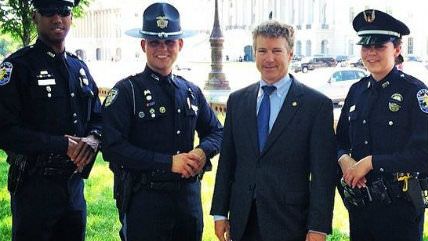Matt Welch on Rand Paul, the Tea Party, and Racism

The Tea Party was commonly portrayed upon its arrival on the national scene as a racist spasm against a black president. Sen. Rand Paul (R-Ky.) was the leading member of the 2010 Tea Party class of elected officials—and he did nothing to help against allegations of racism back then. First came his infamous post-election interview with Rachel Maddow, in which the senator-elect bumbled through his reservations about-and ultimate support for-the 1964 Civil Rights Act. Then came the July 2013 revelation that a key Paul staffer (who soon resigned) had a past as a pro-Confederate shock jock. For consumers who get their political news from MSNBC or The Huffington Post, the narrative was simple: "Rand Paul," as Bill Moyers put it this April, "has a race problem."
But classifying the Kentucky senator—and the movement within the GOP he represents—as crazy and racist is misguided, argues Reason Editor Matt Welch writes. The same Tea Party wave that was tarred as racist is now contributing toward a criminal justice reform movement that stands on the precipice of rolling back the biggest civil rights violations of the last four decades. When those days of liberation come, it will be the libertarian right and the progressive left who will deserve the most credit.


Show Comments (0)